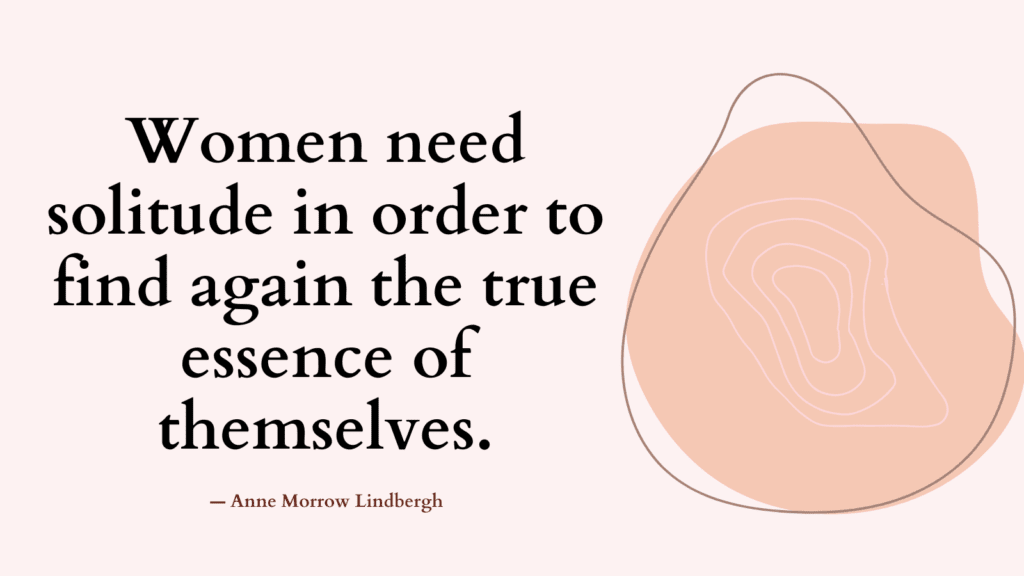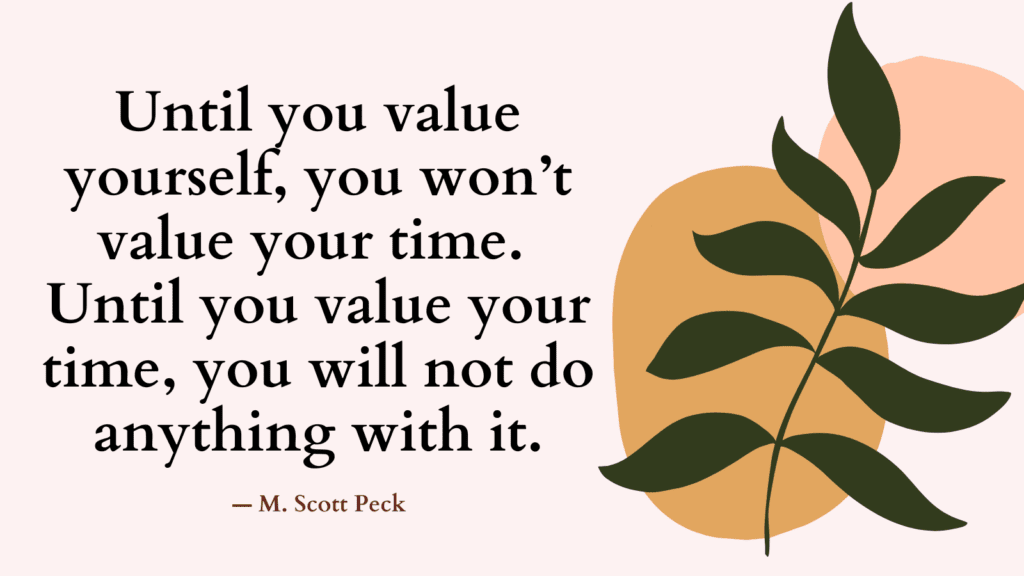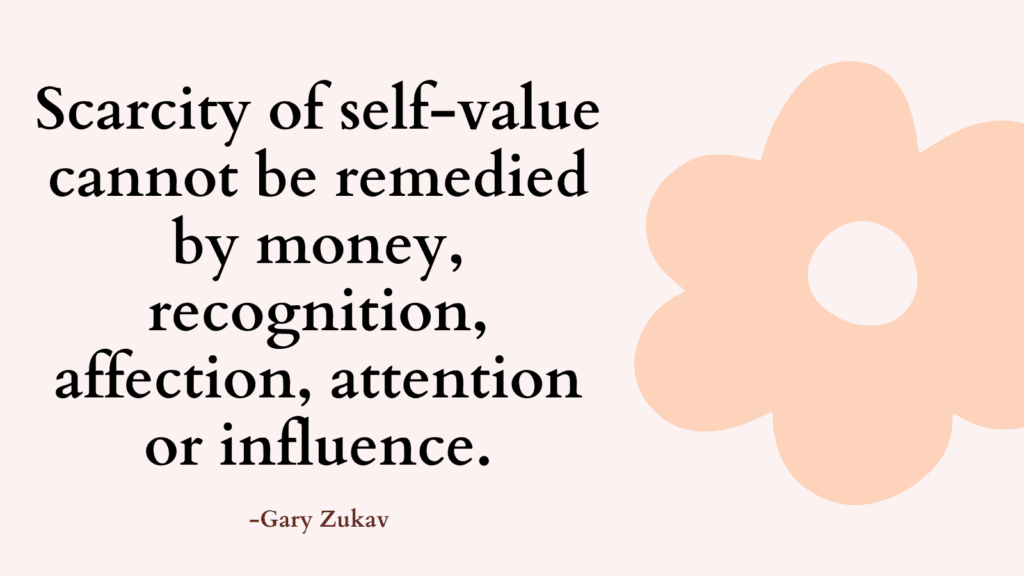This post contains some of the best mindfulness affirmations.
What Are Affirmations?
Affirmations are positive statements that you can use to boost your self-esteem and improve your wellbeing.
When repeated, affirmations can shift negative thought patterns and promote positive thinking.
How Affirmations Work
Neuroplasticity is the brain’s ability to create new patterns and adapt.
Practicing affirmations every day creates new pathways in the brain. This helps change beliefs and create behavior change, according to a meta-analysis of 144 studies.
What Is Mindfulness?
Mindfulness is the act of noticing and observing your outer world and inner world, including bodily sensations, feelings, and thoughts.
Mindfulness allows you to stay grounded in the present moment, without judgment or labeling things you notice in your inner or outer world as right or wrong.
Mindfulness Affirmations
1. I am fully present in this moment.
2. I observe my thoughts without judgment.
3. I am open to experiencing all emotions with acceptance.
4. I embrace uncertainty and trust in the process of life.
5. I release the need to control things outside of my control.
6. I am grateful for the simple joys in life.
Related: Best 6 Mindfulness Exercises For Beginners (+FREE Resources)
7. Each breath I take brings me closer to inner peace.
8. I let go of past regrets and future worries.
9. I am compassionate towards myself and others.
10. I choose to respond, not react.
11. I am aware of the sensations in my body and give them love.
12. My thoughts do not define me; I am the observer of my thoughts.
13. I am gentle and patient with myself as I navigate life’s challenges.
14. I find serenity in the present moment.
15. I allow myself to slow down and savor each experience.
16. I am connected to the beauty and abundance of the world around me.
17. I am centered and grounded in my being.
18. I release attachment to outcomes and find peace in the present.
19. I honor my body by nourishing it mindfully.
20. I forgive myself and others for past mistakes.
21. I accept myself unconditionally.
22. I am aware of my breath, and it anchors me to the present.
23. I trust in my inner wisdom to guide me on the right path.
24. I find joy in the simplest of moments.
Related: Best 8 Mindfulness Exercises For Adults That Will Help You Regulate Your Emotions
25. I let go of judgment toward myself and others.
26. I am worthy of love and happiness.
27. I practice self-care and prioritize my well-being.
28. I find strength in my vulnerability.
29. I release the need to compare myself to others.
30. I am grateful for the abundance of love and support in my life.
31. I embrace change as an opportunity for growth.
32. I choose to let go of negative thoughts and cultivate positivity.
33. I am resilient and capable of overcoming obstacles.
34. I approach challenges with a calm and focused mind.
35. I am fully present in my interactions with others.
36. I trust in the process of life unfolding.
37. I find peace within myself, regardless of external circumstances.
38. I am compassionate towards my own perceived flaws and imperfections.
39. I let go of expectations and find contentment in what is.
40. I am aware of the beauty that surrounds me.
Related: Best 11 Grounding Techniques For Dissociation
41. I am in tune with my body’s needs and honor them.
42. I appreciate the small moments that bring me joy.
43. I release the need for validation from others; my worth comes from within.
44. I trust my intuition to guide me on the right path.
45. I am resilient and capable of adapting to change.
46. I approach difficult emotions with compassion and understanding.
47. I am grounded, rooted, and aligned with my true self.
48. I release the need to overthink and surrender to the present moment.
49. I embrace stillness and find solace in quiet moments.
50. I am free from the burdens of the past and worries of the future.
51. I am aware of the interconnectedness of all beings.
52. I honor my emotions and allow them to flow through me.
53. I am deserving of love, happiness, and abundance.
54. I let go of perfectionism and embrace my authenticity.
55. I am grateful for the lessons that each experience brings.
56. I release the need to judge myself or others; we are all on our own journeys.
57. I trust in the unfolding of life and surrender to its wisdom.
58. I find peace in solitude and quiet reflection.
59. I am gentle and patient with myself as I navigate challenges.
Related: Best 10 Grounding Meditation Exercises
60. I choose to focus on the present instead of dwelling on the past.
61. I find beauty in the present moment, no matter how ordinary.
62. I am fully engaged in my experiences, both big and small.
63. I am resilient and capable of moving forward despite setbacks.
64. I embrace self-compassion and practice kindness towards myself.
65. I let go of what no longer serves me and make space for new possibilities.
66. I trust in my ability to handle whatever comes my way.
67. I find peace in the silence between thoughts.
68. I am grateful for the lessons learned from past experiences.
69. I appreciate the synchronicities and signs that guide me on my journey.
70. I am grounded in the present moment, anchored by my breath.
71. I am open to receiving the abundance that life has to offer.
72. I release attachment to outcomes and find joy in the process.
73. I am aware of the interconnectedness of all living beings.
74. I practice gratitude daily and find beauty in even the smallest things.
75. I am patient with myself and trust in my own process of growth.
76. I let go of limiting beliefs that hold me back from my full potential.
77. I am present for my loved ones and cherish their presence in my life.
78. I approach each day with curiosity and wonderment.
79. I trust in my own resilience and ability to overcome challenges.
Related: Top 23 Grounding Affirmations
80. I embrace balance and prioritize self-care in my daily life.
81. I am open to learning and growing with each experience.
82. I am grounded in my values and integrity.
83. I appreciate the beauty of impermanence and find peace in its flow.
84. I let go of worry and trust in the path before me.
85. I am compassionate towards those who differ from me.
86. I choose to see challenges as opportunities for growth and learning.
87. I am centered and calm in the face of uncertainty.
88. I find joy in the present moment, rather than waiting for happiness to come.
89. I honor my personal boundaries and respect the boundaries of others.
90. I release fear and embrace courage in pursuing my passions.
91. I am deserving of love and positivity.
92. I find solace in nature and its simplicity.
93. I practice forgiveness towards those who have wronged me.
94. I let go of attachment to material possessions and find fulfillment in experiences.
95. I live in the present moment with awareness, intention, and gratitude.
96. I am grateful for the abundance of blessings in my life.
97. I find clarity in mindfulness and meditation.
98. I am confident in my own abilities and worth.
99. I approach challenges with grace and determination.
100. I am excited for what the future holds, but stay present in the present moment.
Related: Best 10 Mental Health Coloring Books
How to Use Mindfulness Affirmations?
Mindfulness affirmations are powerful self-statements that can enhance one’s well-being and promote a positive mindset.
When practiced regularly, affirmations can help shift negative thought patterns, reduce stress, and improve overall mental and emotional health.
1. Understand the Power of Affirmations
Affirmations are not mere positive statements; they are tools that harness the power of self-suggestion.
Scientific research suggests that affirmations can rewire neural pathways in the brain, leading to a more positive and resilient mindset.
Understanding the potential of affirmations can motivate and empower you to incorporate them into your daily routine.
2. Identify Your Personal Needs and Goals
Start by reflecting on your current mental and emotional state.
Identify areas of your life where you feel you need support or improvement.
Are you struggling with self-confidence? Do you need to manage stress more effectively?
Pinpointing your needs and goals will help you create specific and targeted affirmations.
3. Frame Affirmations in the Positive Present Tense
Craft affirmations in the present tense, as if you have already achieved what you desire.
For example, instead of saying, “I will overcome anxiety,” say, “I am calm and at peace.”
By using positive language and framing your affirmations in the present moment, you send a powerful message to your subconscious mind, reinforcing the desired state.
Related: Negative Core Beliefs List (& 8 Tips On How To Challenge Them)
4. Make Affirmations Personal and Authentic
Tailor your affirmations to resonate with your unique experiences and values.
Personalize them by using your name or incorporating specific details relevant to your life.
This personal touch adds authenticity and increases the emotional connection to your affirmations.
5. Keep Affirmations Realistic and Believable
While it is essential to aim high, affirmations should also be believable and within reach.
For example, if you struggle with self-esteem, an affirmation like, “I am a confident and successful person” might initially feel like a stretch.
Instead, start with something like, “I am becoming more confident every day.”
As you build confidence, you can gradually adjust your affirmations.
6. Repeat Affirmations Regularly
Consistency is key when using affirmations.
Set aside dedicated time each day to repeat your affirmations.
Ideally, practice them in the morning to start your day on a positive note, and before bed to reinforce positive thoughts before sleep.
Repetition helps anchor affirmations in your subconscious mind and encourages lasting change.
Related: How To Do Thought Work In 3 Simple Steps
7. Engage Your Senses
To deepen the impact of affirmations, engage your senses while repeating them.
Close your eyes, take deep breaths, and visualize yourself experiencing the affirmations in vivid detail.
Engaging your senses enhances the emotional connection to the affirmations and strengthens their effectiveness.
8. Incorporate Mindful Awareness
Pairing affirmations with mindfulness practice can amplify their impact.
Before reciting your affirmations, take a few moments to ground yourself in the present moment.
Notice your breath, physical sensations, and thoughts without judgment.
This mindful awareness sets the stage for a more focused and intentional affirmation practice.
9. Use Affirmations as Mantras
Transform your affirmations into mantras by repeating them silently or aloud during challenging or stressful situations.
When faced with a difficult moment, bring your attention back to your chosen mantra, allowing it to guide and support you.
Mantras can provide a sense of calm and empowerment during times of adversity.
Related: What Causes Cognitive Distortions? (+Top 10 Common Cognitive Distortions & How To Challenge Them)
How Mindfulness Affirmations Helps?
Mindfulness affirmations can be a powerful tool to cultivate a positive mindset and enhance overall well-being.
By combining the principles of mindfulness and affirmations, individuals can experience a range of psychological, emotional, and physiological benefits.
1. Shifting Negative Thought Patterns
One of the primary benefits of mindfulness affirmations is their ability to shift negative thought patterns.
Through consistent practice, affirmations help break the cycle of negative self-talk and replace it with positive and empowering statements.
By focusing on thoughts that promote self-confidence, acceptance, and resilience, individuals can rewire their brain’s neural pathways, leading to a more positive and optimistic outlook on life.
2. Cultivating Self-Compassion and Acceptance
Mindfulness affirmations encourage individuals to develop self-compassion and acceptance.
By acknowledging and embracing one’s strengths, weaknesses, and imperfections, individuals can foster a sense of self-acceptance and self-love.
When repeated regularly, affirmations like “I am enough” or “I embrace my flaws with kindness” promote a compassionate mindset that allows individuals to treat themselves with kindness and understanding.
3. Enhancing Self-Esteem and Self-Confidence
Mindfulness affirmations play a crucial role in boosting self-esteem and self-confidence.
By repeatedly affirming positive qualities and capabilities, individuals can reinforce a sense of self-worth and trust in their abilities.
Related: How to Stop “What If” Anxiety Thinking?
4. Managing Stress and Anxiety
Mindfulness affirmations can be effective in managing stress and anxiety.
By incorporating calming phrases like “I am calm and centered” or “I release tension and stress,” individuals can activate their body’s relaxation response.
This response triggers the production of calming neurotransmitters and decreases the levels of stress hormones, thus promoting a state of calmness and reducing anxiety symptoms.
5. Promoting Emotional Resilience
Through the regular practice of mindfulness affirmations, individuals can develop emotional resilience.
Affirmations that focus on inner strength and adaptability, such as “I embrace challenges as opportunities for growth” or “I am resilient in the face of adversity,” can help individuals build emotional stamina and bounce back from setbacks more effectively.
This increased resilience enables individuals to approach life’s challenges with a positive and determined mindset.
6. Improving Focus and Concentration
Mindfulness affirmations aid in improving focus and concentration.
By repeating affirmations that enhance mental clarity and attentiveness, individuals can train their mind to stay present and engaged in the task at hand.
Affirmations like “I am fully focused on what I am doing” or “I approach each moment with full attention” help individuals overcome distractions and enhance their ability to concentrate on their goals and priorities.
Related: Future Tripping: Top 9 Ways to Avoid Future-Tripping
7. Stimulating Positive Behavioral Changes
Mindfulness affirmations can serve as catalysts for positive behavioral changes.
By repeating affirmations that align with desired actions or habits, individuals can reinforce their commitment to making positive choices.
For example, using affirmations like “I make healthy choices that nourish my body and mind” or “I am dedicated to my personal growth and development” helps individuals strengthen their resolve and motivation to engage in behaviors that promote their overall well-being.
Conclusion
Mindfulness affirmations are a valuable tool for enhancing well-being and promoting positive thinking.
By incorporating these suggestions into your daily routine, you can harness the power of affirmations to transform your mindset and cultivate a more balanced and fulfilling life.
Remember, consistency and belief in the process are vital for optimal results. Embrace affirmations as a powerful tool on your journey towards improved mental and emotional health.



